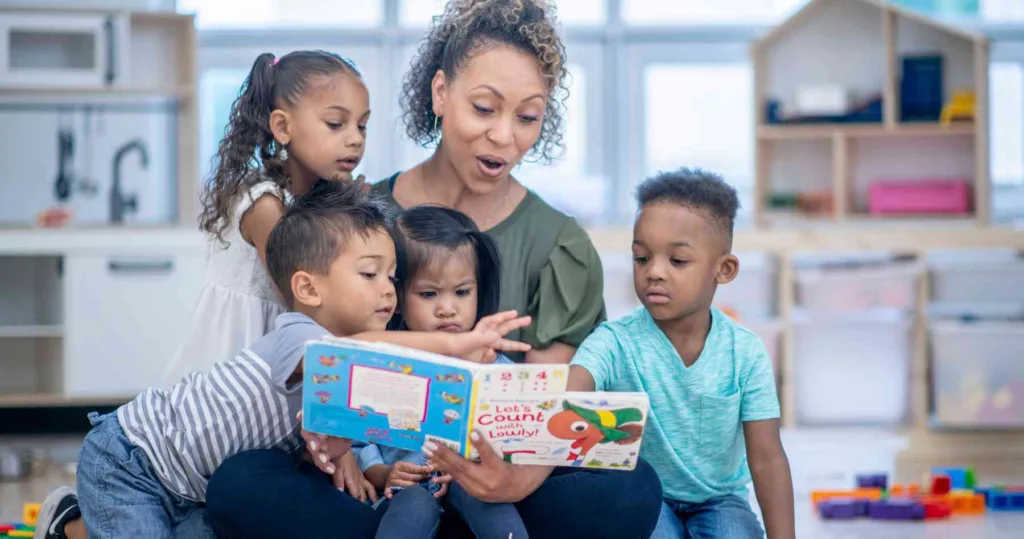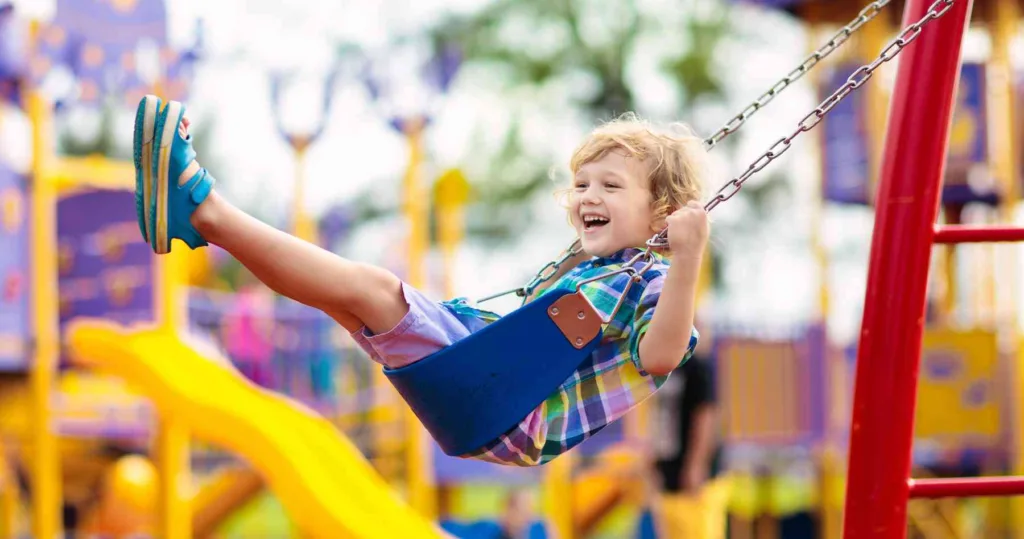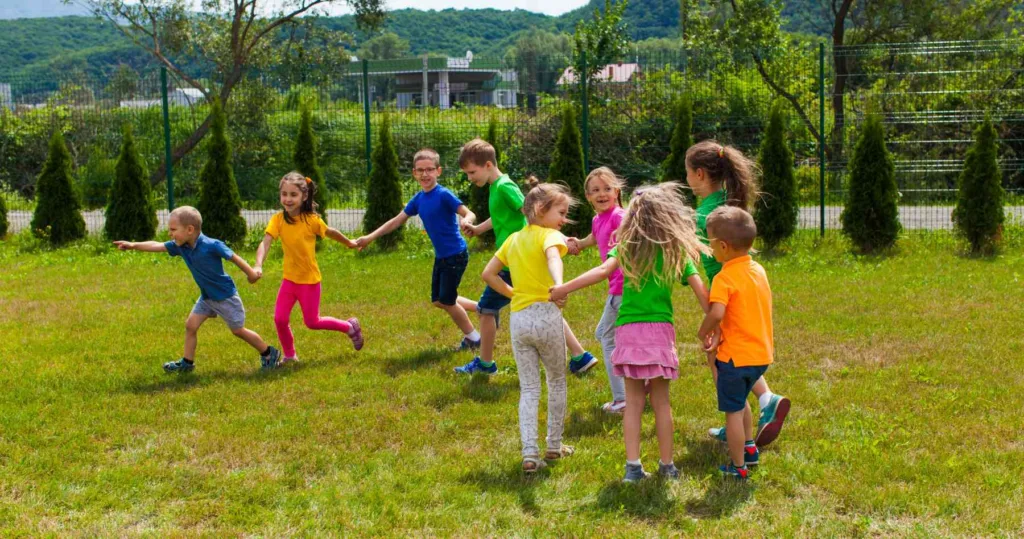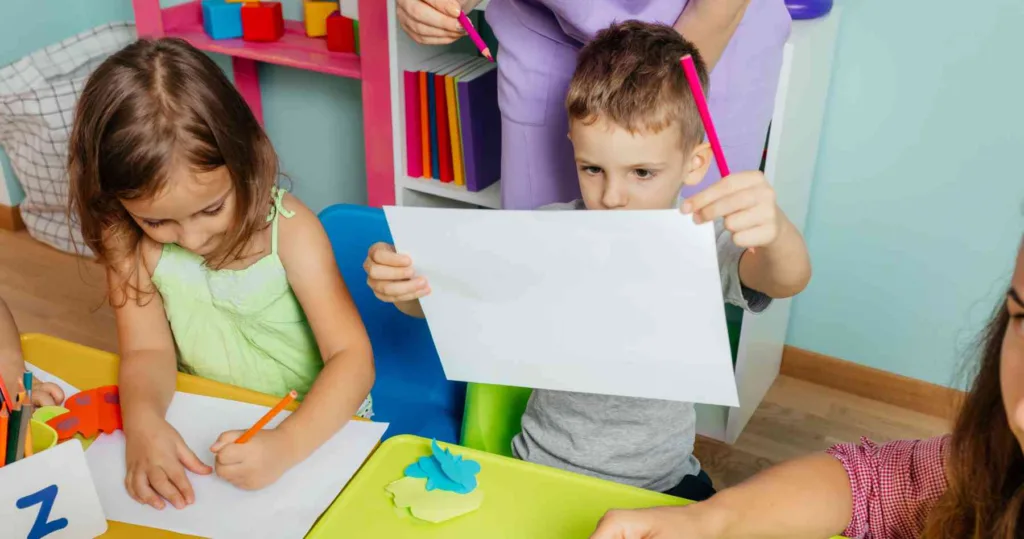Fun and Engaging Activities for Preschoolers
Preschoolers are at an age where they are curious, eager to learn, and full of energy. They are constantly exploring and discovering the world around them. As parents and caregivers, it is essential to provide preschoolers with activities that are not only fun and engaging but also educational. These easy preschool activities will help develop their cognitive, motor, and social skills. In this article, we will explore some creative and exciting activities that you can do with your preschooler at home.

Importance of fun and engaging activities for preschoolers
Play is a vital aspect of a child’s development, and research has shown that it can have significant benefits for children’s cognitive, social, and emotional development. Engaging in hands-on activities for preschoolers can help children develop a wide range of skills that are essential for their future success.
One of the critical benefits of play is that it can help children improve their abilities to plan, organize, and regulate their emotions. Through play, children are exposed to different scenarios that require them to use their problem-solving skills and plan accordingly. This helps them to develop the ability to think ahead and make decisions that will benefit them in the long term. Play also helps children learn how to regulate their emotions by giving them the opportunity to experience a range of emotions and learn how to express and manage them in a healthy way.
Play has also been found to help children develop language, math, and social skills. Through creative learning activities for preschoolers and imaginative play, children learn to communicate with others, develop their vocabulary, and improve their language comprehension. Play also provides opportunities for children to learn basic math concepts like counting, sorting, and measuring. Moreover, play helps children learn important social skills like sharing, taking turns, and cooperating with others.
Another significant benefit of play is that it can help children cope with stress. Research has shown that children who engage in play are better able to manage stress and anxiety. Play helps children relax, reduce their stress levels, and provides them with an outlet for their emotions. Through play, children can process their experiences, explore their emotions, and develop healthy coping mechanisms.
Overall, play is a crucial aspect of a child’s development, and parents and caregivers should encourage their children to engage in play regularly. By doing so, children can develop a range of essential skills that will benefit them throughout their lives. Play provides children with opportunities to explore their environment, interact with others, and develop their creativity and imagination. Through play, children can learn valuable life skills and develop into well-rounded, capable individuals.
ExcellentBased on 28 reviews Trustindex verifies that the original source of the review is Google.
Trustindex verifies that the original source of the review is Google. Pieter Kotze2022-03-11Great pre-primary school in Table View, it has been there for many years and we are now on the verge of sending the 2nd generation there and although they have been around for years, the staff are current and up to date with the latest in childcare and early childhood education, peace of mind for sure...Trustindex verifies that the original source of the review is Google.
Pieter Kotze2022-03-11Great pre-primary school in Table View, it has been there for many years and we are now on the verge of sending the 2nd generation there and although they have been around for years, the staff are current and up to date with the latest in childcare and early childhood education, peace of mind for sure...Trustindex verifies that the original source of the review is Google. Gareth Bolt2021-08-20Jackie,Maude and Applebee team look after our little boy so wonderfully!Trustindex verifies that the original source of the review is Google.
Gareth Bolt2021-08-20Jackie,Maude and Applebee team look after our little boy so wonderfully!Trustindex verifies that the original source of the review is Google. Shakurah Hackley2021-08-20My son loves his teachers. They care for our kids and go the extra mile.Trustindex verifies that the original source of the review is Google.
Shakurah Hackley2021-08-20My son loves his teachers. They care for our kids and go the extra mile.Trustindex verifies that the original source of the review is Google. Nolu Mandindi2021-08-19My daughter been a student since 2019, her brother joined her in 2021, we couldn't be happier with the professionalism shown by the staff. The constant feedback from teachers on progress is on point.
Nolu Mandindi2021-08-19My daughter been a student since 2019, her brother joined her in 2021, we couldn't be happier with the professionalism shown by the staff. The constant feedback from teachers on progress is on point.
Fun and Engaging Activities for Preschoolers: Creative Ideas for Cognitive, Motor, and Social Skill Development
Sensory Play
Sensory play is an excellent way to engage preschoolers in activities that help them develop their cognitive and motor skills. Sensory play involves using the senses to explore different materials and textures. You can set up a sensory bin with materials like sand, water, rice, or pasta. Add some scoops, spoons, and containers to the bin, and let your child explore. Sensory play is a great way to teach your child about cause and effect, measurement, and basic science concepts.
Arts and Crafts
Preschoolers love to create and make things. Indoor activities for preschoolers such as arts and crafts activities are an excellent way to engage them in activities that help develop their fine motor skills, creativity, and imagination. You can set up a craft station with materials like paper, markers, glue, scissors, and paint. You can also use recycled materials like toilet paper rolls, egg cartons, and cereal boxes to create crafts. Crafts like finger painting, collage making, and paper cutting are easy and fun for preschoolers.
Pretend Play
Pretend play is a great way to encourage preschoolers to use their imagination and creativity. You can set up a pretend play area in your home with props like costumes, play food, and toys. Encourage your child to play different roles like a doctor, chef, or firefighter. Pretend play helps preschoolers develop their social skills and learn about different roles and professions.
Storytime
Reading to your preschooler is an essential activity that helps develop their language and literacy skills. You can set up a cozy reading corner in your home with pillows, blankets, and books. Read different types of books like fiction, non-fiction, and poetry. Encourage your child to ask questions and make connections to their own experiences. Reading to your child is a great way to bond and spend quality time together.
Outdoor Play
Fun activities for preschoolers such as outdoor play is essential for preschoolers to develop their gross motor skills, explore nature, and get exercise. You can set up a backyard play area with a sandbox, slide, and swing set. You can also take your child on nature walks or hikes to explore different environments. Outdoor play helps preschoolers develop their coordination, balance, and spatial awareness.


Get In touch
Leave us a message
4 Claret Road, Table View, 7441
(021) 556 4146
office@applebeekids.com
Music and Movement
Preschoolers love to dance and sing. Music and movement activities are an excellent way to engage them in activities that help develop their gross motor skills, rhythm, and coordination. You can play different types of music and encourage your child to dance and move their body. You can also create musical instruments like shakers, drums, or guitars with household items. Music and movement activities help preschoolers develop their creativity and self-expression.
Cooking and Baking
Cooking and baking activities are a fun way to engage preschoolers in activities that help develop their fine motor skills, math skills, and creativity. You can choose simple recipes like cookies, muffins, or pizza. Encourage your child to measure and mix ingredients and decorate their creations. Cooking and baking activities also teach preschoolers about food and nutrition.
Science Experiments
Preschoolers are naturally curious about the world around them. Science experiments are an excellent way to engage them in activities that help develop their cognitive and scientific thinking skills. You can do simple experiments like making slime, creating bubbles, or growing plants. Science experiments help preschoolers develop their observation, prediction, and problem-solving skills.
Building and Construction
Preschoolers love to build and create things with blocks and other materials. Building and construction activities help develop their fine motor skills, spatial awareness, and problem-solving skills. You can provide different types of building materials like blocks, Legos, or cardboard boxes. Encourage your child to build structures like towers, bridges, or houses.
Board Games and Puzzles
Board games and puzzles are a fun way to engage preschoolers in activities that help develop their cognitive and social skills. You can choose games that are age-appropriate like memory games, matching games, or board games like Candyland or Chutes and Ladders. Puzzles are also a great way to develop problem-solving and critical thinking skills.

Engaging preschoolers in activities that are fun and educational is essential for their development. Sensory play, arts and crafts, pretend play, storytime, outdoor play, music and movement, cooking and baking, science experiments, building and construction, and board games and puzzles are all great activities for preschoolers. These activities help develop their cognitive, motor, and social skills and provide opportunities for them to explore and discover the world around them. As parents and caregivers, it is important to encourage and support your child’s interests and abilities and spend quality time with them through engaging activities.
